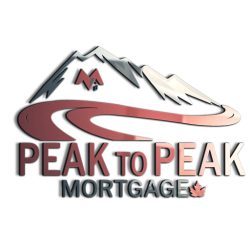What is a credit score and why is it important?
Lenders use your credit score (also called a Beacon Score), as an important tool in assessing your ability to repay debt. What does your credit score tell the lender?
Your credit report provides a summary of information about you; how long your credit accounts have been opened, if they have been paid as agreed, what your balances & minimum payments were as of your last statement, outstanding or paid judgments, collections, and bankruptcy information.
The better your credit history, the higher your credit score. Credit scoring in Canada ranges from 300 to 900 (900 being the absolute best).
There are 2 credit reporting agencies in Canada, Equifax & TransUnion.
What lowers your score?
- Being close to your credit limit or over limit.
- Late payments that are made past the due date (even if the minimum payment is $10.00, it should still be made on or before the due date in the statement).
- Excessive enquiries on your credit report.
- Accounts that have gone to a collection agency.
How do I improve my score?
- Have at least 2 “major” accounts; a good practice is to have both a Visa and a MasterCard. Most lenders now require you to have 2 trade lines. If you only have 1 credit card and are trying to get a mortgage, you will be asked to provide additional credit repayment histories on other accounts like cell phone bills, or a letter from your landlord confirming if your rent was paid as agreed.
- If you are just starting out and do not have any credit or you have bruised your existing credit, you can often obtain a credit card with a small limit, ie $500, arranged through a bank branch, and with cash collateral. Usually the bank will ask for a cash deposit that is double what the credit limit is.
- Always make your payments by the due date. Whether it is a car loan or a credit card with a minimum monthly payment, make sure you make the payments by the specified due date.
- Keep your credit card and line of credit balances below their limits. Ideally, keep the balances at no more than 75% of their limits.
How are the accounts rated?
- Each trade line or account reported, is rated with a letter and a number. The letter describes the type of account, and the number reflects when the last payment was made.
- I = Installment Loan, ie a car loan, or personal loan that has regular monthly payments.
- O = Open Status, usually used for cell phone accounts.
- R = Revolving, meaning the account balance can fluctuate.
- M = Mortgage, information about existing mortgages you have, may be reported.
- The numbers will range from 0 to 9. A zero rating means the account is too new, or has not been used enough to generate a rating. A one rating is the best you can have which means the account was paid as agreed at the time the account was reported to the credit agency. A nine rating is the highest you can have which means the account was written off. To maintain perfect credit, you want to see your accounts reporting as I1, R1, O1, or M1.
- Accounts paid between 31-59 days from the due date are rated with a 2, accounts paid between 60-89 days are rated with a 3, and accounts paid between 90-119 days are rated with a 4. So, a credit card that is paid after the due date, but within 59 days will be reported as a R2. The more 2’s and 3’s + that are reporting on your bureau, the lower your score will be. Past slow payments are kept on your record for 6 years.
What should I do if I have impaired credit?
- As quickly as you are capable, pay any outstanding judgments or collections and keep a record of the payment.
- Bring any late accounts up-to-date, no matter how small the balance. This does not necessarily mean paying the account off in full, but making sure the minimum payments are current.
- Establish new credit if necessary. Apply for a credit card through a bank branch, and offer them cash collateral as security for the credit card. Once your credit score has improved and is “scoring” high enough, you can apply to have the cash collateral released. This usually takes a minimum of 1 year.
- Time is your ally. If you follow the steps above, you will eventually have a higher score.
For more information, here is the information guide provided by the Financial Consumer Agency of Canada; Understanding Your Credit Report.
Please email or call if you have any questions about how your credit score could potentially impact your application for mortgage financing.
annie@peaktopeakmc.com

